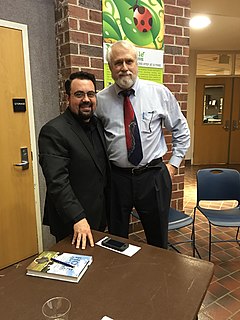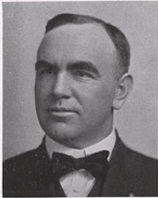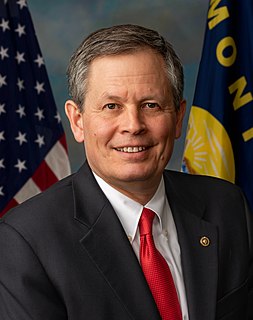A Quote by Slavoj Žižek
The liberal idea of tolerance is more and more a kind of intolerance. What it means is 'Leave me alone; don't harass me; I'm intolerant towards your over-proximity.
Related Quotes
Tolerance is an attitude of reasoned patience towards evil and a forbearance that restrains us from showing anger or inflicting punishment. But what is more important than the definition is the field of its application. The important point here is this: Tolerance applies only to persons but never to truth. Intolerance applies only to truth but never to persons. Tolerance applies to the erring; intolerance to the error.
Unlimited tolerance must lead to the disappearance of tolerance. If we extend unlimited tolerance even to those who are intolerant, if we are not prepared to defend a tolerant society, then the tolerant will be destroyed, and tolerance with them. We should therefore claim, in the name of tolerance, the right not to tolerate the intolerant.
Religion does a lot of good, especially the loving kind, like at Grace Church. I know people who went to a more liberal kind of Christianity and were happy with that. The problem is, for me, there was a process involved in moving from Pentecostalism to a more liberal theology, like Grace Church. What makes me different is that process didn't stop, and it took me all the way. In the end, I couldn't help feeling that all religion, even the most loving kind, is just a speed bump in the progress of the human race.
I feel really - actually - quite terrified about the world as it now exists. The kind of sucking the world dry for a dollar seems to me to be even worse (though it was hard for me to imagine 30 years ago that it could get worse) and the idea that bling and profit over human beings is really more and more a credible idea; people don't even examine it with any kind of question: I find that really terrifying.
One of the paradoxes of liberal societies arises from the commitment to tolerance. A society committed to respecting the viewpoints and customs of diverse people within a pluralistic society inevitably encounters this challenge: will you tolerate those who themselves do not agree to respect the viewpoints or customs of others? Paradoxically, the liberal commitment to tolerance requires, at some point, intolerance for those who would reject that very commitment.
And I'll tell you, I've seen the lightning flash. I've heard the thunder roll. I felt sin-breakers dashing, trying to conquer my soul. But I heard the voice of Jesus saying still to fight on. He promised never to leave me, never to leave me alone. No, never alone. He promised never to leave me, never to leave me alone.
It is something more fleeting than what you normally see. People might somehow take it into their own dreams, into their own life, in a way. I hear it more recently; people are telling me that when they leave the theater and see one of my films, they are not alone anymore. It's probably more that kind of feeling. If I managed to do a film like that, everything is fine.
Is there an idea more radical in the history of the human race than turning your children over to total strangers whom you know nothing about, and having those strangers work on your child's mind, out of your sight, for a period of twelve years? Could there be a more radical idea than that? Back in Colonial days in America, if you proposed that kind of idea, they'd burn you at the stake, you mad person! It's a mad idea!









































